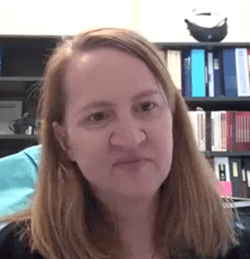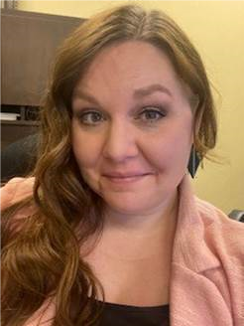Engaging faculty in program learning assessment is a critical aspect of fostering a robust institutional culture focused on meaningful student learning outcomes. We sat down with a few institutional experts to explore three effective strategies they have used to cultivate faculty involvement on their campuses and share a few highlights of our conversation below.
Our panelists included:
- Chris Tombari— Community College of Aurora’s Director of Strategic Initiatives, Assessment, Strategy, & Performance Excellence

- Julie Atwood—Jones College’s Dean of the School of Humanities and Social Sciences and SACSCOC Liaison

- Jen Howard—Lake Area Technical College’s Assessment Coordinator explores three effective strategies to cultivate faculty involvement.

1) Establishing a Collaborative Communication Platform
Creating an open and collaborative communication platform is crucial for engaging faculty in program learning assessment. Dr. Chris Tombari emphasized the pivotal role of communication, stressing its importance in recognizing institutional benefits. Regular check-ins, both formal and informal, allow faculty and assessment leaders to discuss intriguing data points, areas for improvement, and ongoing initiatives. Formally, Community College of Aurora provides full-time faculty with stipends to coordinate assessment initiatives or re-assignment time to serve as assessment coordinators for their department. Informally, the English department holds semesterly meetings for troubleshooting or developing course, program, and institutional-level assessment rubrics for those faculty members interested in norming student samples, tweaking outcomes, or other assessment artifacts.
“Trying to communicate how simple it can be to assess starts with the way that we write our assessment outcomes. ‘Don’t chase more than one rabbit’.”
This two-way dialogue facilitates a deeper understanding of the assessment process and cultivates a sense of shared responsibility for program success. Data-informed decisions provide the opportunity for faculty to communicate changes seen at an institutional level. Let’s assume that assessment data reflects the need to improve English Composition I & II findings. This information can be utilized to dictate a need for funding a writing center or hiring additional adjunct English faculty members.
2) Showcasing Success Stories and Best Practices
Highlighting success stories and best practices is a powerful method to inspire and engage faculty in program learning assessment. Jen Howard stressed the importance of storytelling in improving the assessment culture. Co-sponsoring events, such as in-service days or faculty development workshops, focused on showcasing successful assessments can bridge the gap between theory and practice. Recognizing faculty excelling in the assessment process, including instances of learning opportunities from missed benchmarks, not only acknowledges their efforts but also provides valuable insights for continuous improvement.
"Telling people’s stories is a huge benefit. If you hear someone else’s success story in their program. The more we advertise and spread those stories, the better the culture becomes."
3) Aligning Assessment with Teaching and Learning Practices
Encouraging faculty involvement by aligning program learning assessment with teaching and learning practices enhances its effectiveness. Dr. Julie Atwood highlighted the challenge of shifting from a 'check-the-box mentality'. To overcome this challenge, assessment leaders should emphasize how engagement in assessment practices directly benefits curriculum enhancement and strengthens faculty-student relationships. Prompting faculty to consider questions related to students' classroom experiences, feelings of support, and factors influencing success, retention, and graduation integrates assessment seamlessly into their teaching and learning objectives.
"I am making a point to speak with the individual Schools and talk through 'what is the value of assessment,' and how it can help them individually in their classrooms from year to year. There is much more buy-in now after having those conversations."
From an Institutional Research standpoint, faculty can be prompted to consider questions like:- How do students experience the classrooms, curriculum, and campus?
- Do students feel supported in all areas of the curriculum?
- What type of students struggle where?
- What factors influence student success, retention, and graduation?
- What are the unintentional roadblocks in a major or curriculum?
These three strategies form a comprehensive approach to engaging faculty in program learning assessment. By implementing these tactics, institutions can build a dynamic assessment culture that not only meets accreditation requirements but also contributes significantly to the continuous improvement of programs and student learning.
If you are interested in learning more or participating in our next expert discussion reach out.
We are dedicated to building a community that thrives on shared knowledge and collaborative growth!



